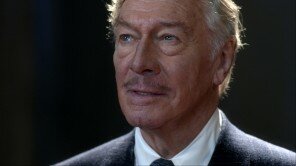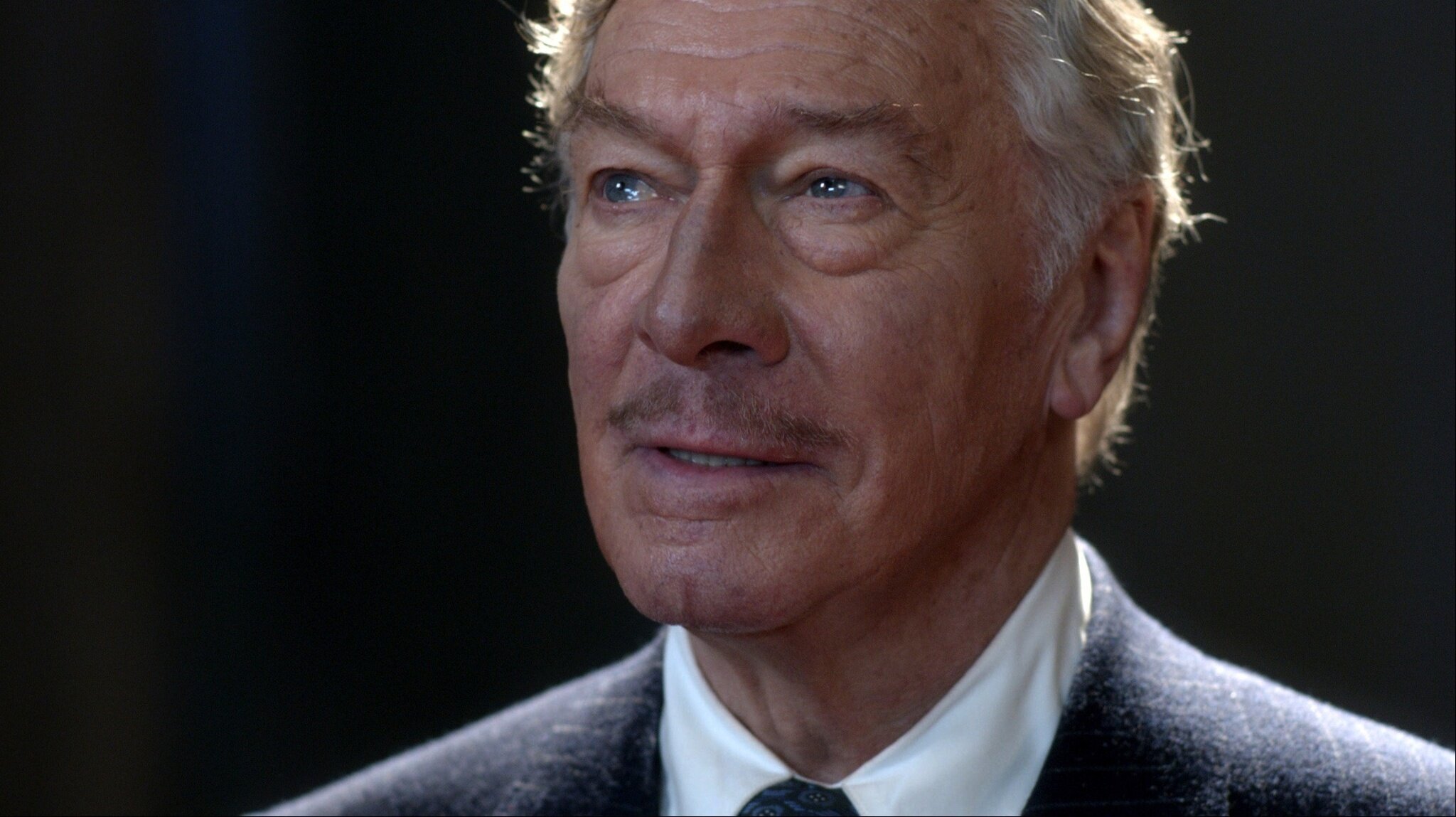 Legendary actor John Sidney Blyth, known professionally as just “plain” John Barrymore, was born in Philadelphia in 1882, and died in Los Angeles in 1942. Survivors included his almost-equally-famous actor siblings, Lionel and Ethel Barrymore; and four ex-wives, including Diana Costello, mother to his son John Drew Barrymore, who would eventually father the actress Drew Barrymore. He was preceded in death by his actor parents Maurice and Georgiana Drew Barrymore.
Legendary actor John Sidney Blyth, known professionally as just “plain” John Barrymore, was born in Philadelphia in 1882, and died in Los Angeles in 1942. Survivors included his almost-equally-famous actor siblings, Lionel and Ethel Barrymore; and four ex-wives, including Diana Costello, mother to his son John Drew Barrymore, who would eventually father the actress Drew Barrymore. He was preceded in death by his actor parents Maurice and Georgiana Drew Barrymore.
As manifested by legendary actor Christopher Plummer, playing Barrymore in the virtuoso almost-one-man show (opening at SIFF Film Center for one week starting November 30th), the man recalls almost nothing of Georgiana, who died when he was still a child; and mostly dark thoughts against Maurice, who, in the classic manner of fathers (even non-theatrical ones) hounded John, hindered John, and died conveniently insane, beyond reproach or rebuke from anyone, especially John.
The film, derived from the stage play by William Luce, burbles like an overturned bottle of John Barrymore’s favored intoxicating libations. It runs, narratively, through archetypes writ large, and the unreachable father is one of those. Plummer, filmed onstage in his native Toronto, must drag these archetypes down to human scale, to win the audience. This he does. It may not have happened exactly the way Luce, film director Erik Canuel, and original stage director Gene Saks conspire to show it. But Plummer breathes in the story and exhales it through his posture, his poses, his crooked smile, and even the bags under his eyes.
Actually, the action’s convenient conceit—that Barrymore’s re-mounting his famous stage version of Shakespeare’s Richard III as a last-ditch effort to save himself from the poorhouse—never happened in real life. As a tapestry, though, it serves well enough. Plummer takes the stage in a marvelous double-breasted pin-striped suit, pulling out a cocktail cart and cracking wise about an old friend of his who drank so very much that he exploded, postmortem, in the crematorium.
I am still alive, thinks this Barrymore, so I must have a leg up on the cremated. And I don’t drink quite as much as that fellow, so I must not drink all that much.
He’s kidding himself of course, as all drunks do. Another archetype. But Plummer and company wisely shift away from drink, to what made Barrymore drink in the first place. Gradually, Barrymore’s bonhomie and deliciously ribald limericks fade away. He’s dancing around the work that must be done; he must get in the saddle, so to speak, and the saddle is Shakespeare’s Richard III—the part, not the entire play. But for anyone to pay for the play, the actor must carry the character.
Canuel’s camera moves smoothly, slowly, almost always right-to-left at first. This is the opposite direction from the many lines of Shakespeare which Barrymore must struggle to master. But Canuel wants to show a man flung as backwards in his memories, as he’s tapered backwards in adulation. Something is waiting for Barrymore at the beginning of his life. Something he lost and cries for. An archetype. But thanks to Plummer, a lived one.
Over the last twenty minutes the camera reverses itself left-to-right. It catches Barrymore up short, and he must haul himself after it to stay within the frame. Barrymore’s prompter Frank (played by John Plumpis) falls silent and may be gone for good.
I caught Denzel Washington in Flight this weekend, another powerful story of an out-of-control addict. But Washington’s struggle, by the end, was the struggle to become honest. Barrymore, at least in Barrymore, struggles to stay alive. Don’t expect honesty from him, except accidentally. The show may not go on. Against all mounting evidence, though, the man unpacks his mind and his heart. He sings a happy tune and prays for the next lungful to lift the next note.
